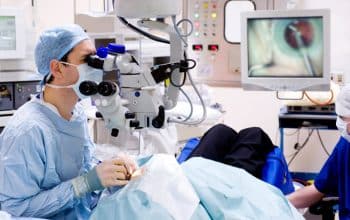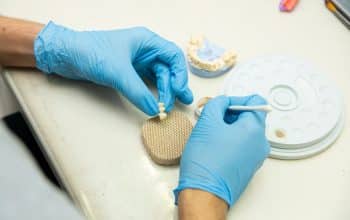SELECT THE WORDS & LEVEL
Telemedicine has been around for a couple of decades, and has made a buzz in recent years. Over the past few months, patients and healthcare providers started to embrace more telehealth’s potential to enhance healthcare. Although a big variety of telehealth platforms are already on the market, patients have now the chance to access top quality care from the comfort of their home. It’s an experience that has been proven to be vital during the Covid-19 pandemic.
Aside from the safety that telemedicine offers, it also provides accessibility. The daily obligations, long working hours, and more, make the modern average person’s life more hectic than ever. For plenty people, avoiding trips to the doctor’s office or too long waiting lines is highly beneficial. And it’s also cost-effective! Altogether, all these factors have pushed further the popularity of telemedicine for nursing homes in 2022.
It looks like it’s going to be even more popular and beneficial for the future, so, many healthcare professionals are going to jump in and excitedly ask what telehealth looks like for nursing homes.
What is Telemedicine for Nursing Homes?
Telemedicine for nursing homes is an optimal way of delivering healthcare services through the use of technology, including tablets, mobile devices, and computers. Telehealth covers more than digital appointment confirmations or reminders. It is a very good way to provide assistance and support from a distance. A nurse’s role in telemedicine can vary, depending on their position; but they generally provide patients with proper care, education, and therapy, in times needed.
Telehealth nursing is a fairly practice that has evolved significantly over time. Over the past 20 years, telehealth nursing has bloomed into many healthcare plans, like hospitals and clinics. Telehealth nursing is serving as a base step in which nurses assess the patient’s condition and determine whether if a visit is necessary. Healthcare professionals might also adopt this method to diagnose lower-risk health conditions, prescribe an online treatment option, educate patients about self-care at home, etc.
The Future of Telehealth Nursing
As you can see, there are lots of benefits of telehealth nursing for patients. Given the helps, high quality care, and faster results, it’s no wonder that the future looks promising. As technology continues to advance, patients’ comfort with virtual health communication tends to improve, with more and more institutions likely to double their number of telehealth appointments. The likely evolution of telehealth nursing doesn’t just include more chances for quality care, but also signals new opportunities for the medical field.
More than 500,000 registered nurses are predictable to retire in 2022, and other more than 1 million new listed nurses await to replace retirees, according to research. Is when telehealth comes into play. More than half of all healthcare services will be done virtually by 2030. If this will turn out to be true, the adoption of telehealth technology will soon mitigate the effects of the nursing deficiency, while allowing nurses to work through telemedicine. This will only positively transform the way healthcare is provided and consumed.
Given the value and trends of telehealth nursing, now is the perfect time for medical institutions to start implement telehealth technology and practices in their processes.
Successful Telemedicine Nursing
Telemedicine for nursing homes can be implemented in a medical institution in many ways, especially in acute healthcare. For some hospitals, telemedicine nursing fosters increased connection and communication between patients and healthcare providers. Patients living in rural areas can travel great distances to access medical care. Why not have the chance to receive treatment option through telehealth?
Telehealth platforms allow nurses to contact patients from far distances and provide high-quality care without the need for any of both parts to travel. Nurses in the rural areas can also use technology to contact patients with no medical professionals in their area, ensuring that patients have everything they need. Many rural areas and beyond use telemedicine to ease patient-nurse interactions.
Do Telemedicine Nurses Work from Home?
It depends on the nature of their work and the employer. Some nurses provide remote support, while others focus on being alongside a telehealth team within a clinic or a hospital. The at-home nurses handle processing insurance claims, triage, or manage disabled cases. The chance to work from home and enjoy more flexible hours appeal to new and existing nurses to seek a better work-life balance. Telemedicine nurses who work from home can do it from anywhere in the world. As long as there is strong and reliable internet connection, their jobs are secure.
How to Become a Certified Telehealth Nurse?
There are lots of healthcare professionals interested in how to become a telemedicine nurse. Luckily, there are no telehealth certifications demanded for telemedicine nurses. If you are interested in becoming a telehealth nurse, you will need a nursing degree, and proper technological and communication skill to provide remote healthcare support. Most healthcare professionals require one or two years of nursing experience additionally. In some cases, the demand might be three to five years of experience.
Take Your Telemedicine Nursing Skills to New Levels
Currently, there are no mandatory telehealth-specific certifications needed, but this hasn’t always been the case. The National Certification Corporation’s Telephone Nursing Practice was once popular among healthcare professionals. But in 2007, it has been discounted. Not even today no other certification has been replacing it, but there are many options and recommended certifications have raised. However, as a rule of thumb, a telehealth nurse must have strong interpersonal skills, depth of knowledge. empathy, etc. These attributes might not occur during an in-person appointment, as many healthcare professionals must improve their communication skills to ensure they succeed in telehealth.
But aside all of this, successful telehealth nurses must continually struggle to develop their skills. Technology and medicine advance quickly, so nurses who want to pursue in this field must train really hard and educate their qualifications to earn a leg on the competition. So, there’s no argue about it – telemedicine for nursing homes is definitely becoming a needed industry in 21st century.




